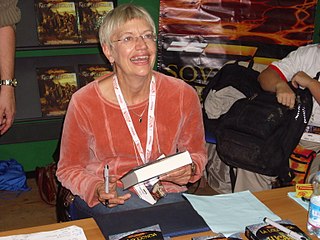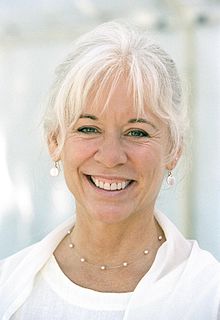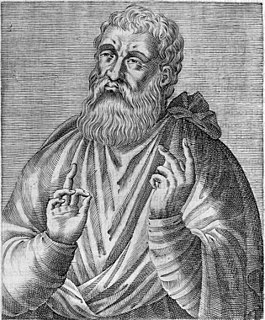A Quote by Anthony de Mello
A man who took great pride in his lawn found himself with a large crop of dandelions. He tried every method he knew to get rid of them. Still they plagued him. Finally he wrote the department of agriculture. He enumerated all the things he had tried and closed his letter with the question: "What shall I do now?" In due course the reply came: "We suggest you learn to love them."
Related Quotes
It would perhaps not be amiss to point out that he had always tried to be a good dog. He had tried to do all the things his MAN and his WOMAN, and most of all his BOY, had asked or expected of him. He would have died for them, if that had been required. He had never wanted to kill anybody. He had been struck by something, possibly destiny, or fate, or only a degenerative nerve disease called rabies. Free will was not a factor.
It was one of those strange moments that came to him rarely, but never left. A moment that stamped itself on heart and brain, instantly recallable in every detail, for all of his life. There was no telling what made these moments different from any other, though he knew them when they came. He had seen sights more gruesome and more beautiful by far, and been left with no more than a fleeting muddle of their memory. But these-- the still moments, as he called them to himself-- they came with no warning, to print a random image of the most common things inside his brain, indelible.
[Man] is the only animal who lives outside of himself, whose drive is in external things—property, houses, money, concepts of power. He lives in his cities and his factories, in his business and job and art. But having projected himself into these external complexities, he is them. His house, his automobile are a part of him and a large part of him. This is beautifully demonstrated by a thing doctors know—that when a man loses his possessions a very common result is sexual impotence.
All Mattia saw was a shadow moving toward him. He instinctively closed his eyes and then felt Alice’s hot mouth on his, her tears on his cheek, or maybe they weren’t hers, and finally her hands, so light, holding his head still and catching all his thoughts and imprisoning them there, in the space that no longer existed between them.
It meant that Diana had not waited for any explanation, however halting and imperfect, but had condemned him unheard; and this showed a much harder, far less affectionate woman than the Diana he had known or had thought he knew - a mythical person, no doubt created by himself. It had of course been evident from her letter, which made no reference to his; but he had not chosen to see the evidence and now it was absolutely forced upon his sight it made his eyes sting and tingle again. And deprived of his myth he felt extraordinarily lonely.
When any one of our relations was found to be a person of a very bad character, a troublesome guest, or one we desired to get rid of, upon his leaving my house I ever took care to lend him a riding-coat, or a pair of boots, or sometimes a horse of small value, and I always had the satisfaction of finding he never came back to return them.
Jesus never tried to hide his loneliness and dependence on other people. He chose his disciples not as servants but as friends. He shared moments of joy and grief with them, and asked for them in times of need. They became his family, his substitute mother and brothers and sisters. They gave up everything for him, as he had given up everything for them. He loved them, plain and simple.
She stood before him and surrendered herself to him and sky, forest, and brook all came toward him in new and resplendent colors, belonged to him, and spoke to him in his own language. And instead of merely winning a woman he embraced the entire world and every star in heaven glowed within him and sparkled with joy in his soul. He had loved and had found himself. But most people love to lose themselves.
We have tried everything to get rid of suffering. We have gone everywhere to get rid of suffering. We have bought everything to get rid of it. We have ingested everything to get rid of it. Finally, when one has tried enought, there arises the possibility of spiritual maturity with the willingness to stop the futile attempt to get rid of it and, instead, to actually experience suffering. In that momentous instant, there is the realization of that which is beyond suffering, of that which is untouched by suffering. There is the realization of who one truly is.
That same night, I wrote my first short story. It took me thirty minutes. It was a dark little tale about a man who found a magic cup and learned that if he wept into the cup, his tears turned into pearls. But even though he had always been poor, he was a happy man and rarely shed a tear. So he found ways to make himself sad so that his tears could make him rich. As the pearls piled up, so did his greed grow. The story ended with the man sitting on a mountain of pearls, knife in hand, weeping helplessly into the cup with his beloved wife's slain body in his arms.






































